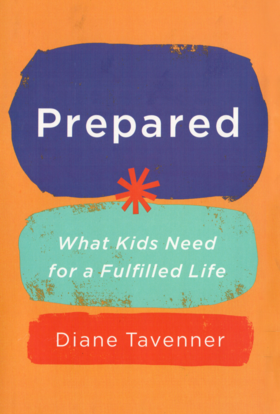Prepared
How can I reach these kids.

When you think back to your primary or secondary school days was there something you would change? If you could change absolutely anything, create your own curriculum, add or remove some lectures, assign less homework, what would your dream school look like? Would you change school start times? Allowing students to get enough sleep and, in my case, preventing students from waking up at an un-Godly hour trying to catch a 6am bus.
Everyone involved in a child's education, including parents, teachers, administrators, and even the students themselves all want every student to succeed. As a country we have devised countless initiatives and tests to identify and help a student who falls behind on their journey to developing the tools needed for a successful life. Yet as of 2018, there were an estimated 2.1 million (~5.3%) American children, between 16 to 25 who would be labeled "dropout". A title, according to the Bureau of Labor Statistics, that gives them half the earning power as someone with a college degree and 5 times more likely to go without a job. Which asks the question, if everyone is helping our next generation succeed, why are so many failing to do so?
Diane Tavenner, the author of the book Prepared and founder of Summit Public Schools, which operates some of the top-performing schools in the nation, looks to have found the answer to ensuring every child has a successful life. Her goal with Summit is to go beyond teaching the math, writing, and science that students will need to get into college, but to also teach what students will need to live a great life. Life skills like the ability to learn and research new topics, manage their time wisely, and the self-confidence along with finding the initial direction they wish to pursue with their lives.
As she explains in her book, Summit is continuously refining and improving the teaching model that focuses on three key elements with their students:
- self-directed learning: All students are responsible (with support from their teachers) for setting their own learning goals, planning how to learn the information, test their knowledge and assess their performance afterward.
- project-based learning: A hands-on, problem oriented, self-discovery method of learning that allows students to deeply explore a topic they're curious about.
- mentoring: Beyond the typical school guidance counselor, each student in Summit has a dedicated mentor that meets regularly with them to help and guide students as they achieve their personal and academic goals.
These skills are incredibly important in today's workforce. When all of humanity's information is just a fingertip away, we must learn more than just the reading, writing and arithmetic. We need the life skills like time-management, creative & critical thinking skills, along with the drive to accomplish our goals that let people truly succeed in this information saturated world.
The majority of the book is dedicated to the teachers and administrators overseeing our children's education. However, in the final section, Diane gives parents some advice on how to encourage their children's independent growth. Most of the section can be distilled into the belief that parents should be mentoring, not directing. If a child is into computers, support them. When they change their mind (and they will) support them. In this part of their lives they are exploring their world and finding their place in it. The best thing a parent can do is let them explore, as scary as that may be.